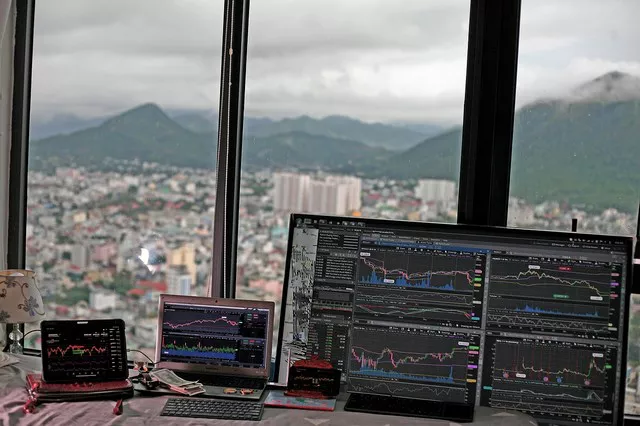Futures markets are integral to global finance, offering investors opportunities to speculate on the future price movements of commodities, financial instruments, and indices. Unlike traditional stock markets that have fixed trading hours, futures markets operate on a more flexible schedule designed to accommodate international participants across different time zones. Understanding the trading hours of futures markets is crucial for traders seeking to capitalize on price fluctuations and manage risk effectively.
Global Reach, Flexible Hours
One of the defining characteristics of futures markets is their global reach. Traders from around the world participate in futures trading, necessitating a schedule that spans multiple time zones. Unlike stock exchanges that typically open and close at fixed times, futures markets generally operate nearly 24 hours a day, five days a week.
Regular Trading Hours vs. Extended Trading Hours
Futures markets can be divided into regular trading hours (RTH) and extended trading hours (ETH). Regular trading hours refer to the standard hours during which most trading activity occurs. These hours are typically defined by the exchange and are consistent across most days. Extended trading hours, on the other hand, allow trading to occur outside of regular hours, providing additional opportunities for traders to react to market-moving events and news that occur outside of standard business hours.
Understanding Regular Trading Hours (RTH)
Regular trading hours for futures markets vary depending on the specific contract being traded and the exchange where it is listed. While there is no universal standard for all futures contracts, many exchanges follow similar hours to ensure liquidity and orderly trading. A typical trading day for futures can be broken down into several key sessions:
Pre-Market Session: This session occurs before the official opening of regular trading hours. It allows traders to react to overnight developments and news that may impact market sentiment.
Regular Trading Session: This is the primary trading session when the majority of market participants are active. Liquidity tends to be highest during regular trading hours, making it a crucial period for executing trades with minimal slippage.
Post-Market Session: Following the regular trading hours, some futures markets offer a post-market session. This session allows traders to react to events that occur after the close of regular trading, such as earnings reports or economic data releases.
Extended Trading Hours (ETH)
Extended trading hours have become increasingly popular among futures traders seeking to take advantage of market movements that occur outside of regular hours. ETH typically includes:
Pre-Market Hours: Similar to the pre-market session in regular trading hours, pre-market ETH allows for trading before the official ETH opening.
After-Hours Trading: This encompasses trading that occurs after the close of regular trading hours. After-hours trading can be particularly volatile, as liquidity tends to be lower compared to regular hours.
See Also:Which Stocks Are Best for Options Trading?
Key Futures Exchanges and Their Trading Hours
Different futures exchanges around the world have their own trading hours, reflecting their regional markets and the types of contracts they specialize in. Here are some of the major futures exchanges and their typical trading hours:
CME Group (Chicago Mercantile Exchange):
Regular Trading Hours: Generally from 8:30 a.m. to 3:15 p.m. Central Time (CT) for equity index futures, and slightly different hours for other commodity futures.
Extended Trading Hours: CME also offers extended trading hours in the morning and evening sessions for various futures contracts.
Eurex Exchange:
Regular Trading Hours: Typically from 8:00 a.m. to 10:00 p.m. Central European Time (CET). Eurex is a major exchange for European equity index futures and options.
Tokyo Commodity Exchange (TOCOM):
Regular Trading Hours: Usually from 9:00 a.m. to 3:30 p.m. Japan Standard Time (JST). TOCOM specializes in commodities futures such as gold, rubber, and oil.
Hong Kong Futures Exchange (HKFE):
Regular Trading Hours: Generally from 9:15 a.m. to 12:00 p.m. and 1:00 p.m. to 4:15 p.m. Hong Kong Time (HKT). HKFE offers futures contracts on indices and commodities.
Factors Influencing Trading Hours
Several factors influence the trading hours of futures markets:
Global Participation: Futures markets accommodate traders from different time zones, necessitating extended trading hours to ensure continuous liquidity and trading opportunities.
Market Liquidity: Regular trading hours typically see the highest levels of liquidity, as they coincide with the active participation of institutional investors, hedge funds, and other market participants.
Market Structure: Each futures exchange determines its trading hours based on market demand, regulatory considerations, and the types of contracts traded.
Special Considerations for Day Traders and Scalpers
For day traders and scalpers, understanding the nuances of trading hours is crucial for executing short-term strategies effectively. Key considerations include:
Volatility Patterns: Volatility often varies throughout the trading day, with heightened activity around market openings and closings.
Liquidity Risk: Trading outside of regular hours can expose traders to increased liquidity risk, potentially leading to wider bid-ask spreads and slippage.
News and Events: Extended trading hours allow traders to react to news and events that occur outside of regular market hours, which can impact short-term price movements.
Risk Management Strategies
Effective risk management is essential when trading futures, regardless of the hours. Strategies include:
Setting Stop-Loss Orders: Automated stop-loss orders can help mitigate losses in volatile market conditions, especially during extended trading hours.
Monitoring Margin Requirements: Margin requirements may change during extended trading hours, requiring traders to stay informed and adjust positions accordingly.
Using Limit Orders: Placing limit orders can help traders control the price at which they buy or sell contracts, reducing the impact of sudden price fluctuations.
Conclusion
In conclusion, the trading hours of futures markets are designed to accommodate global participation and provide ample opportunities for traders to react to market developments. Understanding the distinctions between regular trading hours and extended trading hours is essential for formulating effective trading strategies and managing risk. By staying informed about specific exchange hours, market participants can capitalize on price movements and navigate the complexities of futures trading with confidence.


